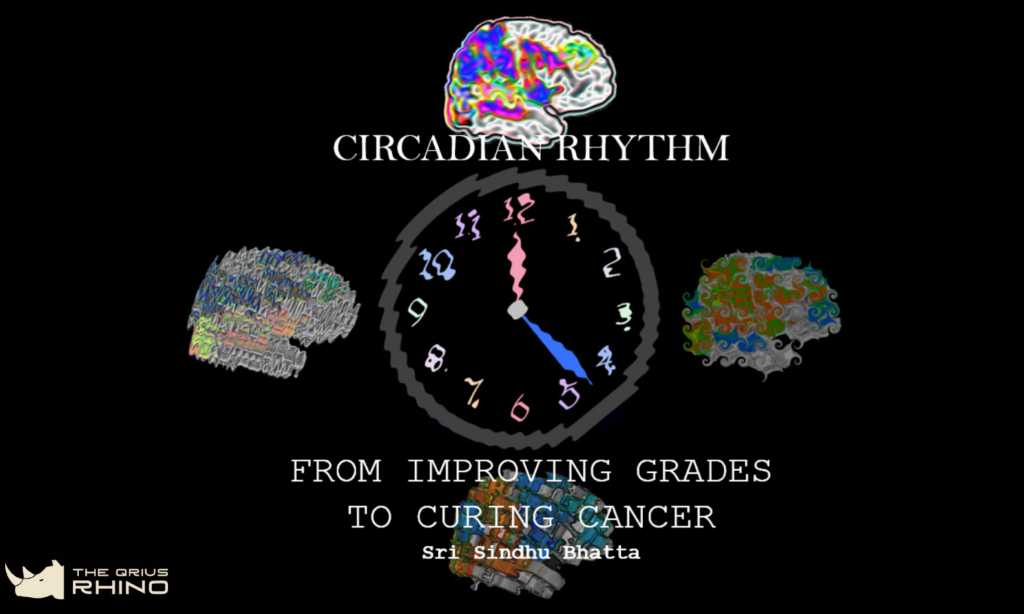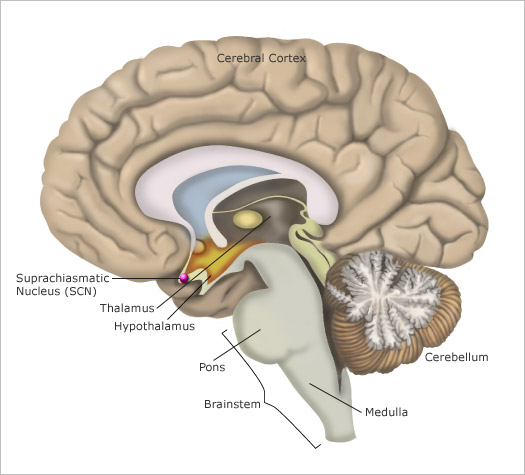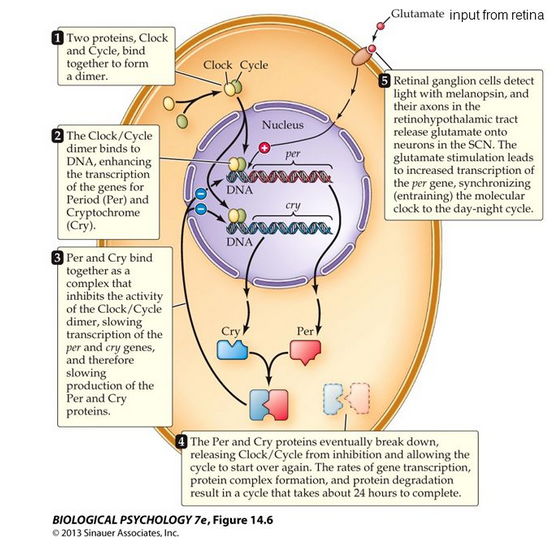
Do but consider what an excellent thing sleep is; it is so inestimable a jewel that, if a tyrant would give his crown for an hour’s slumber, it cannot be bought; of so beautiful a shape is it, that though a man lies with an Empress, his heart cannot beat quiet till he leaves her embracement’s to be at rest with the other: yea, so greatly indebted are we to this kinsman of death, that we owe the better tributary, half of our life to him: and there is good cause why we should do so: for sleep is that golden chain that ties health and our bodies together.
Thomas Dekker (The Gull’s Hornbook, 1609)
The breakthrough in understanding circadian rhythm has a far-reaching impact, from making you the class topper to fighting cancer! Have you ever wondered why heart attack mostly occurs in the mornings, Olympic records are broken in the afternoon and even my grandma’s asthma peaks at dawn?
The answer lies in decoding these facts.
What is Circadian Rhythm?
Introducing you to the magic of circadian rhythm that regulates all the functions like alertness, strength, cell repair and the best time for any activity.
Our chronotype controls our sleep/wake time. For example, a study showed that larks wake up and sleep early, and owls wake up and sleep late. Most teenagers are owls, but the school timings match larks; hence, starting school an hour later has shown to improve grades. The master clock is a cluster of cells called the suprachiasmatic nucleus (SCN). It gets reset by light. Organs have clocks of their own. SCN is like the orchestra conductor when they play in sync it’s in perfect symphony. Still, each time we have that late-night craving, the unexpected food messes up the livers rhythm, and too much gadget light or too little daylight can cacophony the entire system, and with jetlags say hello to absolute mayhem!
The long-term circadian dysfunction is disastrous, leading to obesity, diabetes, and dementia. So, how does the circadian rhythm have so many superpowers? Let’s take a peek into the science behind it.
The Science behind Circadian Rhythm
The suprachiasmatic nuclei (SCN) are two small, paired nuclei found in the hypothalamus. Their function is to maintain biological patterns that follow a 24-hour cycle. In order to do this, the cells of the SCN contain biological clocks.
Cells in the SCN produce two proteins called Clock and BMAL1. Clock and BMAL1 bind together and promote the expression of genes called a period (per) and cryptochrome (cry). Circadian rhythm is controlled by the per and cry genes.
The protein produced by these genes, Per and Cry, then binds together and stops Clock and BMAL1, which suppresses the production of Per and Cry. Gradually, however, the Per and Cry proteins break down.

When kinase protein phosphorylates Per and Cry leading to their degradation, Clock and BMAL1 are free to act again, i.e., they go back to promoting the expression of per and cry, starting the cycle anew.
The negative feedback loop of per and cry activation and inhibition powers the 24-hour clock. The process consistently takes around 24 hours to complete before it repeats itself.
Scientists think that this cycle of gene expression is what acts as the molecular clock in SCN cells. However, the process is more complex as there are multiple periods and cryptochrome genes as well as other proteins involved in the complete mechanism. The SCN can use the information it receives from the retina about light in the environment to adjust to the circadian clock.

Why is this important?
In the end, it all boils down to time. Timing is everything. Diseases also have their own circadian cycles. My grandma’s arthritis flares up in the evening. Interestingly, even cancer cells wax or wane through the day, which is why chemotherapy given at the right time is shown to save lives. The bottom line is that every prescription must come with a time-of-day stamp. Scientists worldwide are researching how this biological process that we take for granted has a significant impact on the prognosis.
Also, the next time you try to pull an all-nighter for that test or have a cheat meal and sit hours in front of the screen. Think about how it could affect your body. Minimizing light exposure before you go to bed, and trying to get as much morning light as possible, are simple steps that could help most people to regulate and improve their sleep.
Live long and prosper!
By, Sri Sindhu Bhatta (BS-MS Student, IISER Kolkata)
Similar Reads:
- The Walking Dead
- Illuminating Life – At times, dark backdrops inspire bright lights
- Blue Light Blues-What Blue Light Means For Your Eyes and Health
References:
- Colwell, C. (2011). Linking neural activity and molecular oscillations in the SCN Nature Reviews Neuroscience, 12 (10), 553-569 DOI: 10.1038/nrn3086
- The Mammalian Circadian Timing System: Organization and Coordination of Central and Peripheral Clocks. Charna Dibner, Ueli Schibler, Urs AlbrechtAnnual Review of Physiology 2010 72:1, 517-549
- Healthy Sleep, Harvard Medical School and WGBH Educational Foundation
- Brain function of night owls and larks differ, study suggests, BBC Health, Published on 15 February 2019.
- Light and the circadian rhythm: The key to a good night’s sleep? BBC Health, Published on 19 May 2019.